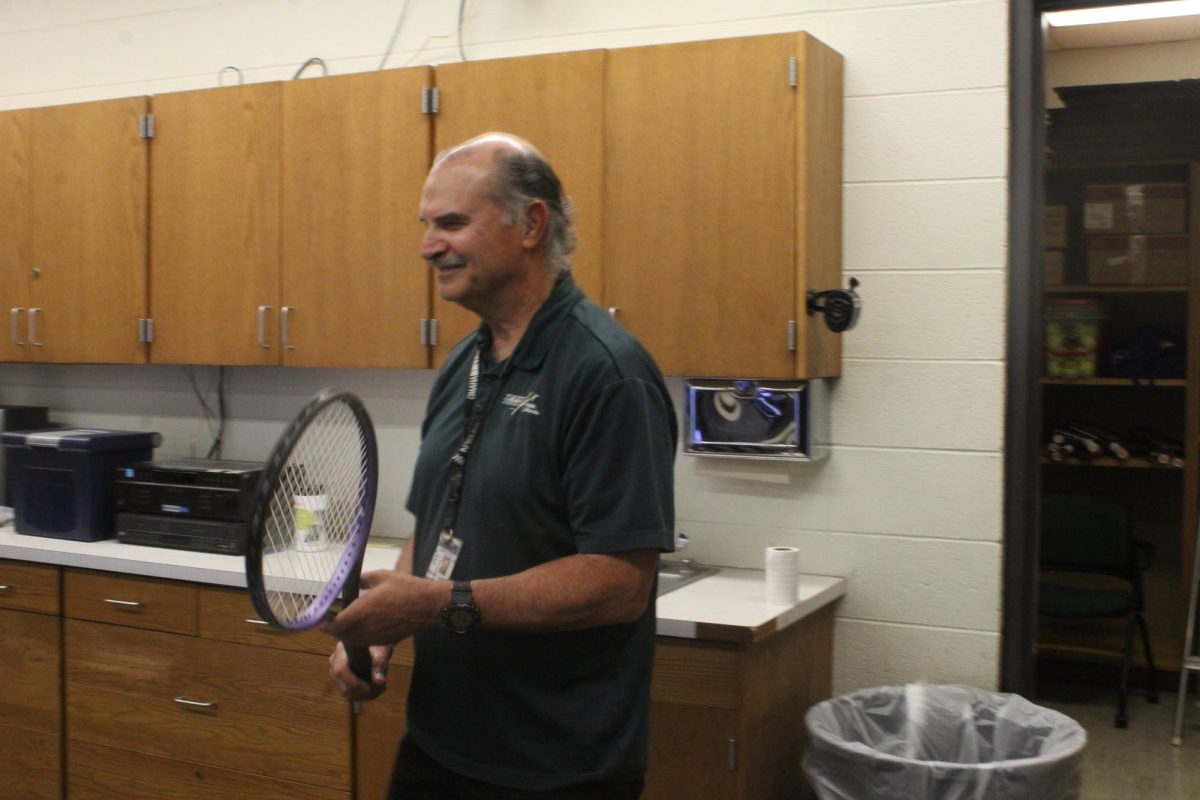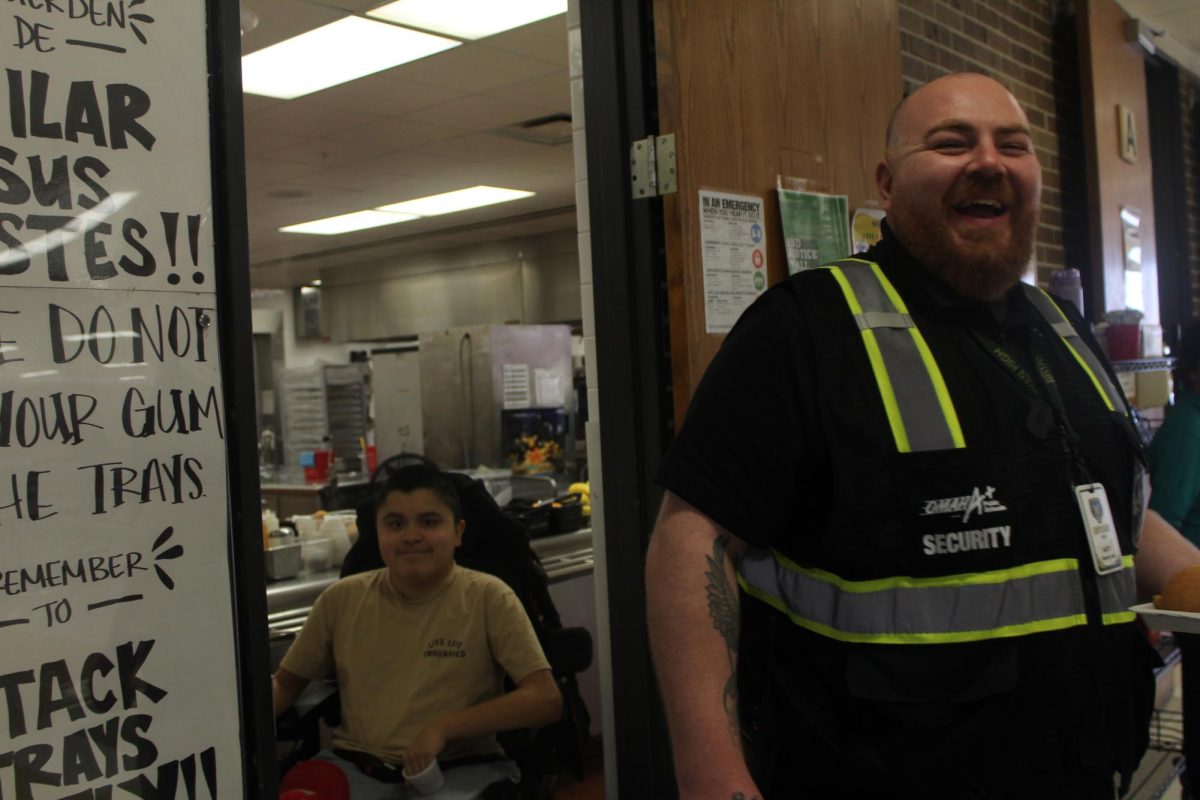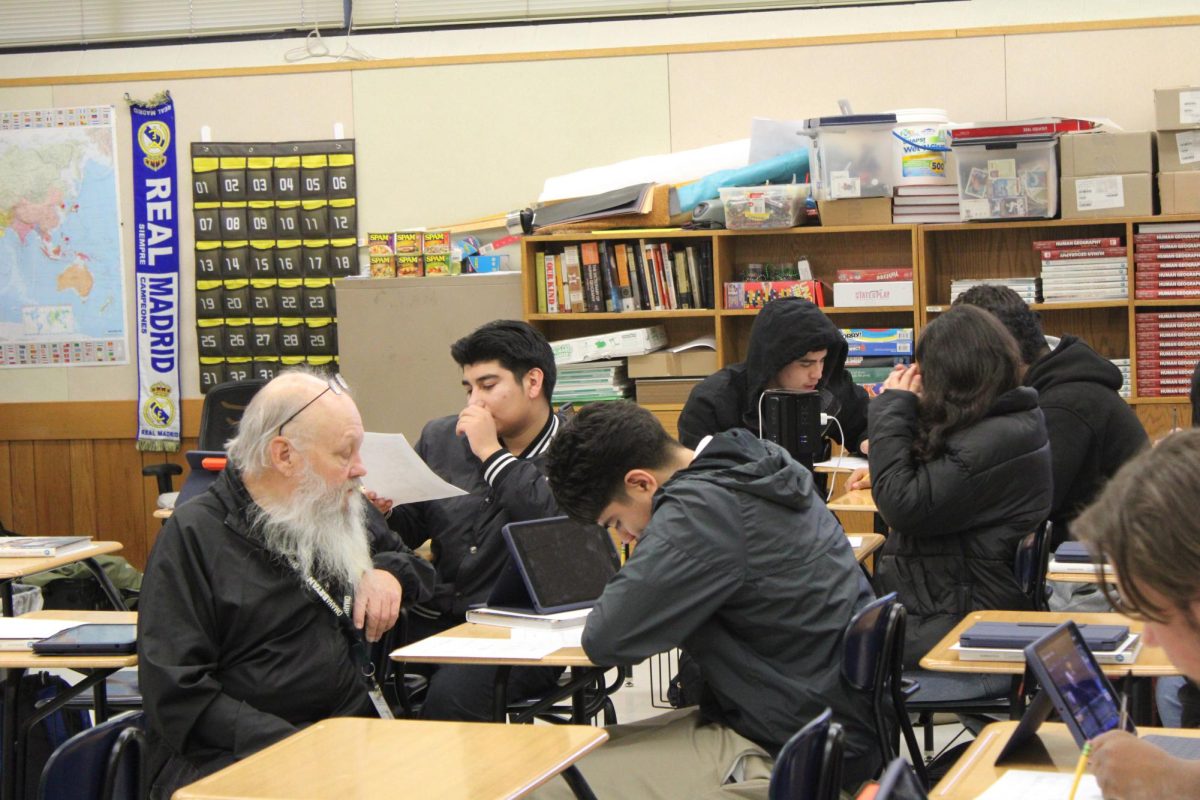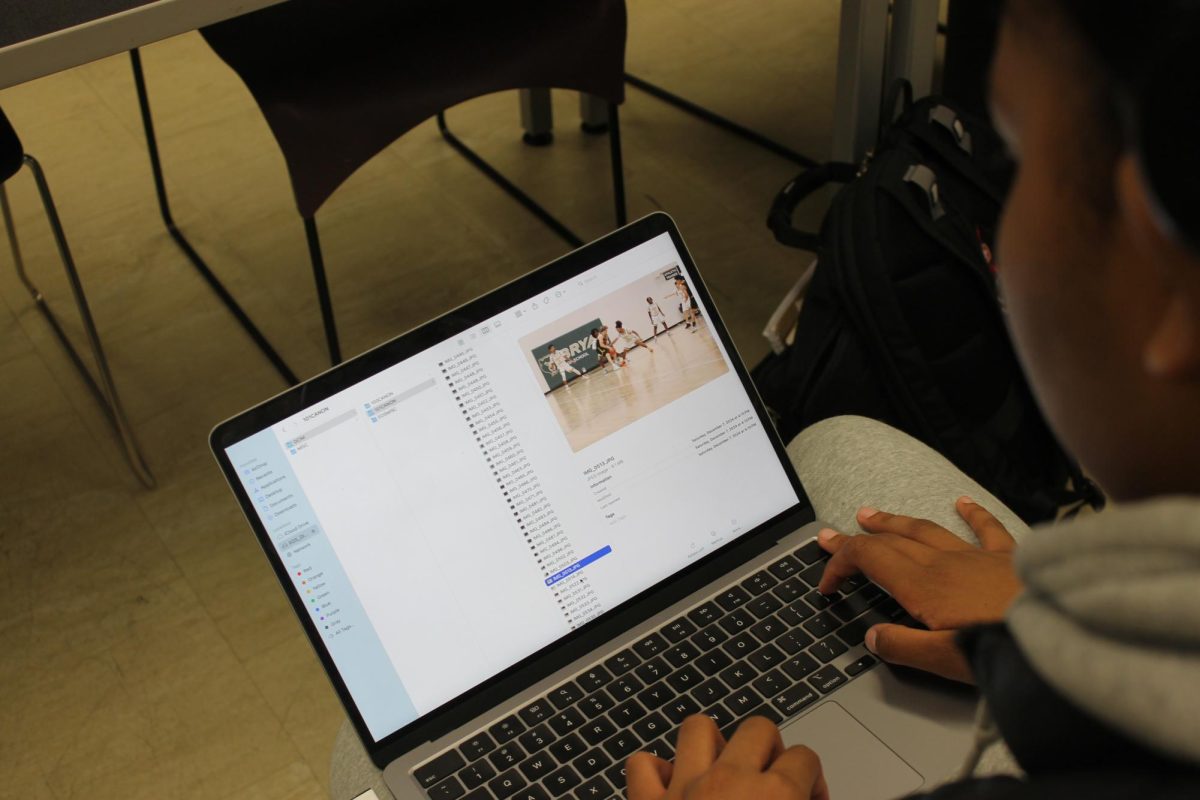This idea was introduced by superintendent Matthew Ray and implementation began this year. He wants to improve students and believes that begins through a focus on literacy. Literacy includes reading, writing, listening, and speaking. He talked about this as a moon-shot, a huge goal of getting all students to read on grade level by 2030.
Before the school year, the entire OPS staff met at Baxter Arena where this idea was launched. Each school began setting plans on how to implement this in their classrooms. Bryan’s strategy is called Talk Read Talk Write.
“This is a structure and a guide for a routine that I think can help us improve literacy,” said principal Anthony Clark-Kaczmarek.
This new focus was inspired by the connection literacy has with other aspects of school.
“You can’t focus on these other subjects if you can’t read, if you struggle with reading, if you don’t understand how to read for comprehension or complex text, [or] if you don’t know that it will affect everything else,” Ray said.
This goal’s success depends on teachers, so the district plans to provide as much support as needed. They have a plan, between now and 2027, to get to as many teachers as possible and show them how to teach English in any classroom.
“Often, a secondary teacher doesn’t take a course on early literacy, they’ve taken a lot of content courses to be experts in their content,” Ray said. “I don’t know that every teacher was taught how to teach reading, and that’s something we want to work on through those courses.”
The OPS staff discuss this new goal and support each other through monthly Professional Learning Community meetings where they practice using the Talk Read Talk Write.
“We’re always reinforcing it every month to try and make sure that we’re holding each other accountable,” said social studies teacher Joshua Wendell.
Many schools face a language barrier obstacle. Keeping English language learners involved and preventing them from falling behind is an extra challenge.
“We need our students who are in our English as a Second Language classes to increase their reading scores so they can move out of these classes,” CK said. “Just acquiring a language is hard first, but also, what are the four things that are on the ELPA21 test to get a student to pass? Reading, writing, listening, speaking. So it’s the same thing. If we can really focus on helping students learn the language and focus on reading, we’re going to make huge strides.”
In addition to Talk Read Talk Write, some teachers use other literacy strategies, like translations on PowerPoints.
“I’m trying to use more graphic organizers in my general population classes to help them organize their thoughts and make it more approachable. I’m trying to implement the style of that literacy strategy more often in class to break up lectures so it’s not nearly as dry, [but] more interactive,” said Wendell.
To measure success, schools are looking at a variety of things from ELPA21 test scores, ACT scores, report cards, individual assignment grades, etc.
“When President John F. Kennedy talked about getting to the moon, he didn’t have all the plans figured out,” Ray said. “He didn’t come saying, ‘This is how we’re going to get there.’ He brought people together to get there, and that’s kind of the idea … We bring people together, and it’s more of a community effort.”
The district has high expectations for this change but believes they’ll be met if everyone puts in the effort.
“I want every teacher in the Omaha Public Schools to understand if they run into someone that’s not a reader, how they can help,” Ray said. “It’s not just your third grade teacher’s responsibility, it’s everybody’s in the system.”






Theresa Herman • Dec 19, 2024 at 7:40 pm
I am excited to see this new program implemented. As a substitute teacher, I think we should also be trained to help achieve the goals of this program.